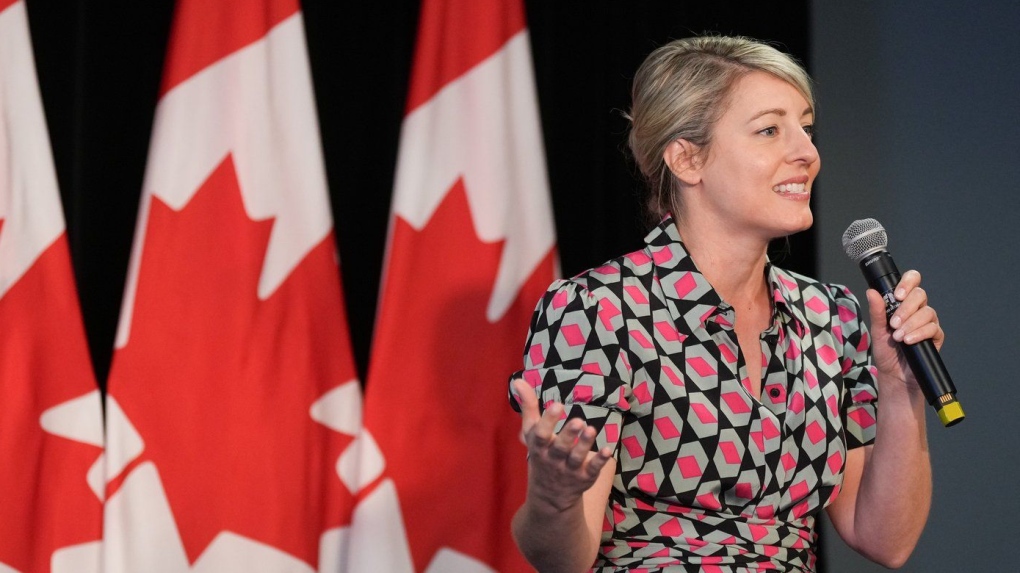Foreign Affairs Minister Melanie Joly said it was time for a woman to lead the United Nations, a statement echoed by 14 other female foreign ministers on Friday.
“It is time within the U.N. system that the next secretary-general should be a woman,” she told reporters in Toronto.
“The United Nations has been in existence for over 75 years, and that’s more than just time.”
States will nominate the UN’s 10th secretary-general for a term beginning in 2027. To date, only women have served as deputy secretary-general, including Canadian diplomat Louise Frechette.
The ministers also said there must be gender equality in the role of President of the UN General Assembly – only four women have held the position in 72 terms.
Jolie hosted the meeting of women foreign ministers in Toronto alongside Jamaican Foreign Minister Kamina Johnson-Smith, after hosting a similar gathering in 2018. The two-day meeting was attended by ministers from Ghana, Indonesia, Nepal and Romania, ahead of a high-level visit to the UN General Assembly in New York next week.
The ministers exchanged views on how countries can advance gender equality in public life and tackle issues that prevent women from taking up public office. They focused on “gender-based disinformation” and the need to hold social media platforms to account.
“We are concerned by the rise in hateful and misogynistic rhetoric targeting women online, particularly in public spaces,” the joint statement released on Friday said.
“A safe online public space is a public good for society and democracy as a whole, and regulations designed to maintain its safety and truth should not be seen as stifling transparency or freedom of speech or of the press.”
The statement comes as the Liberal Party seeks to push through a bill on online harms, which the government says is aimed at cracking down on hate speech but critics say it could stifle freedom of expression.
Jolie said all the ministers at the conference had faced misogyny first-hand, and that “these experiences have only strengthened our resolve to advance gender equality and strengthen the power of women leaders globally.”
“We are all aware of the global backlash against women and our human rights, and the growing threats faced by those who have the courage to stand up and speak out.”
The statement also called on the Taliban to reverse “draconian measures that have erased decades of progress” for Afghan women’s rights since they recaptured the country three years ago. The statement did not use the term “gender apartheid,” a term that has become popular among advocates to describe the situation in Afghanistan.
This report by The Canadian Press was first published Sept. 20, 2024.

